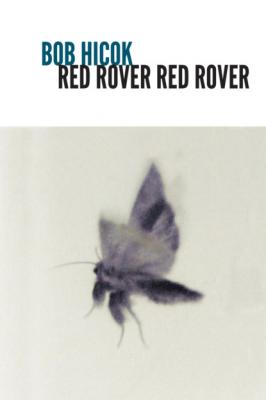Red Rover Red Rover. Bob Hicok
Читать онлайн.| Название | Red Rover Red Rover |
|---|---|
| Автор произведения | Bob Hicok |
| Жанр | Зарубежные стихи |
| Серия | |
| Издательство | Зарубежные стихи |
| Год выпуска | 0 |
| isbn | 9781619322301 |
of McDonald’s, lawn mowers, For Sale signs,
capitalism; it was like looking in a mirror
that ignored my face, that saw
where I really came from, that stared back
at the savanna inside my bones.
I pulled over and built a house
of my affection: I would live there
with distance and mountains
and the intelligence of rainbows,
who are smart to be untouchable.
If we caught them, we’d put them in zoos,
cut them open, try to civilize them,
teach them French, teach them war.
I pulled over, sat on the hood
and leaned into the air
with my capless and bald head,
the bite of it, the hello of it,
and decided to stand taller within myself,
like a swing set or giraffe.
I’ve driven along fracked fields,
where mountains have been scalped
and refineries channel apocalypse
with their forests of pipes, their fire
and smoke,
and while some places make me eager
for lobotomy, Alaska
makes me want to be better, think better,
do better: to fit in. Not that I know
what that is or means. Not that we can.
Just that we better. Just that we must.
Inside job
He talks more than a river.
Louder than a gun
doing the times tables.
Sometimes he smells
like three-day-old scallops.
Sometimes four.
Whatever anyone says to him
is reason to say something
about himself.
I avoided him in the halls.
I avoided him as an idea
of what a person might be.
I once saw him up ahead of me
and turned around.
I was in New York,
he was in Boston.
That’s how good my eyesight is.
That’s how much he made me think,
Here is a man
who’d trim his toenails
in an airport.
Then I saw him in a park with a boy.
The boy was wearing a helmet.
The boy could barely stand on his own.
The boy’s eyes always looked up
and his head bobbed
as if studying to be a balloon.
This is Trevor, the man said,
this is my son. The man smiled.
Though our faces are no good
at putting out forest fires,
his happiness could have,
his pride. This is my son.
He said it twice
as if I hadn’t heard,
as if making sure
I would spread the news.
I will spread the news.
A man who smells
like three-day-old scallops
has a son named Trevor
who will never live on his own.
Now when I see the man
I ask after his health.
I want him to live forever.
I want the moon to stop
sneaking away from us
a little at a time.
I want him to forgive me
for giving up
on looking into his eyes.
A nature documentary
Worrying I worry too much,
I try to explain Jell-O to my cats,
who sniff it and walk away,
one to watch a wasp
digging out a hole under a rock beside the shed,
the other to watch the wasp-watching cat
while I eat Jell-O on the porch with my fingers.
Two at first, then my whole hand,
as if orange Jell-O were an actual orange,
not all of it,
just a few slurped chunks from the pan,
after which I join the watching of the wasp,
no longer worrying about worrying, just worrying
and enjoying the relative quiet,
like when the dentist’s drill stops
and I can hear the chainsaw solo
without distraction in the orchestra
of my head.
Curious whether the sky is where I left it,
I lie on my back on the drive and look up;
it’s still there,
though none of the paintings of clouds
are dry.
The white cat comes over quickly
and licks the hair on the side of my head,
as if I’m another cat. I turn my head,
look in his one milky and one green eye,
love that he’s adopted me
and lick his head a few times to show it.
And for about seven seconds
I’m not even worrying, not even
about the cat hair in my mouth, thicker
and more honest than human hair,
the other cat on her way down the drive
to look for frogs to kill
and partially eat or not eat at all,
the white cat already at ease
with himself at all times,
when I start to worry again,
now that I don’t know how lucky I am,
that there’s no unit of measure for gratitude,
as the narrator says, Once again we see the poet
not leaving well enough alone,
starting
